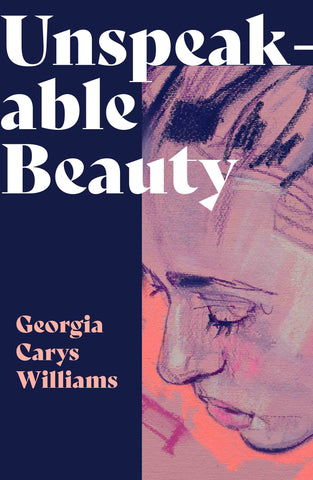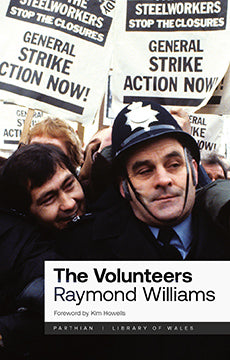Day two of our Rhys Davies Short Story Award author insights! Today we interviewed Kate Lockwood Jefford, who was shortlisted for her story, ‘Conditions for an Avalanche’.

Born and raised in Cardiff, Kate has trained as a psychiatrist and psychotherapist with an interest in writing and performing, including stand-up comedy. She has also completed an MA in creative writing at Birkbeck. Kate has written many short stories which have featured in collections such as the Brick Lane Bookshop 2020 Prize Anthology and the Fish Publishing & Bristol Prize Anthologies 2021. Her short story, Picasso’s Face, won the 2020 VS Pritchett Prize and has been selected for the Aesthetica Creative Writing Awards anthology 2022, and her story In Bed With My Sister won the 2021 Bath Short Story Award. Now residing in London & Folkestone, Kate is focusing on creating her own collection of stories.
In Kate’s shortlisted entry, she focuses on the effects of mental health after the loss of a beloved family member. There is anonymity within the nameless characters as they continue their laborious routine grieving after the trauma of losing a loved one.
Kate spoke about the inspiration behind her fiction and how she develops detailed characters.
1. I love the parallel between the avalanche and the character’s emotions, and how the end of the story ties the themes together. Where did the inspiration for that come from?
There has been much loss and grief in different ways in my life in recent years, and it’s a frequent theme in my fiction, especially its impact, conscious and unconscious, on the bereaved. This particular story was triggered (!) by a conversation with a forklift truck driver, who used the term ‘avalanche of wardrobes’ after a near-miss at work, conjuring a striking image. I read a lot about avalanches, from which the fiction grew into these parallel strands of an actual mountain tragedy and the emotion building in the relationship between a mother and grown-up son unable to express their grief in words.
2. Did your history in psychiatry/psychotherapy help create or inform the characters’ emotional depth?
I cannot help but draw on all my experience from childhood onwards in writing fiction. My training as a psychiatrist and psychotherapist is an important part of this as it was my working life for so long. Also, I trained as a psychodynamic therapist, which offers a way of understanding all behaviour as communication, including the metaphor and unconscious meaning in the words we choose. Free association and thinking about what may be behind how we act and what we say is, for me, a way of understanding the world and very much informs my writing.
3. In this short story you manage to create such a strong sense of character, the lives they lead and the lives they led before the story begins – for anyone struggling with character development, what advice would you give?
Good question. The first thing I always say is read read read. Try to unpick how writers you like/admire capture compelling, alive, believable characters. I tend to write from instinct and feel, to write scenes from inside and outside the characters. Giving your characters a ‘story’ – even if it doesn’t feature in the story you’re writing – can help develop layers. Who do they love, hate, have they ever lied, who to and why? What is their shameful secret, what are they frightened of and why ? etc. etc. Show and tell and be as specific as you can about detail, have your characters drink a ‘sweet frothy cappuccino’ or a ‘double-double expresso’, not just ‘coffee’. Thinking about the voice and tone of the story, and what you want to communicate overall, helps. I’m a big fan of subtext, and a book that really helped me think about character is The Art of Subtext by Charles Baxter.
4. How is your story collection progressing? Do you have any other future writing plans?
My first collection of stories is coming along, thanks: On a ‘hot as hell’ day in a Spanish city, a woman wonders if it was a good idea to bring the baby to the beach. When his mother dies, a fifteen-year-old boy is taken into foster care where he takes up the ancient art of sword swallowing. A psychiatrist gets into bed with her sister. It includes Conditions for an Avalanche, of course.
The characters in the different stories are united by their experience of loss – real or imagined. Grief they can’t face or find words for is enacted in addiction, abduction, stalking, obsession and psychosis. I also wanted to explore subtext & how innovations in structure and form can add nuance & layers to a narrative, offering fresh ways of looking. I’m at the stage of thinking about the collection as a whole and how the stories resonate with each other and how to order them, and I will be seeking representation and publication.
Future writing plans? I have lots of ideas. Whether it’s more short fiction or something longer remains to be seen, but there will definitely be more from me.
Thank you so much for taking part Kate, we can’t wait to see your ideas develop!
If you missed day one of our author insights, you can read our discussion with Elizabeth Pratt here.



